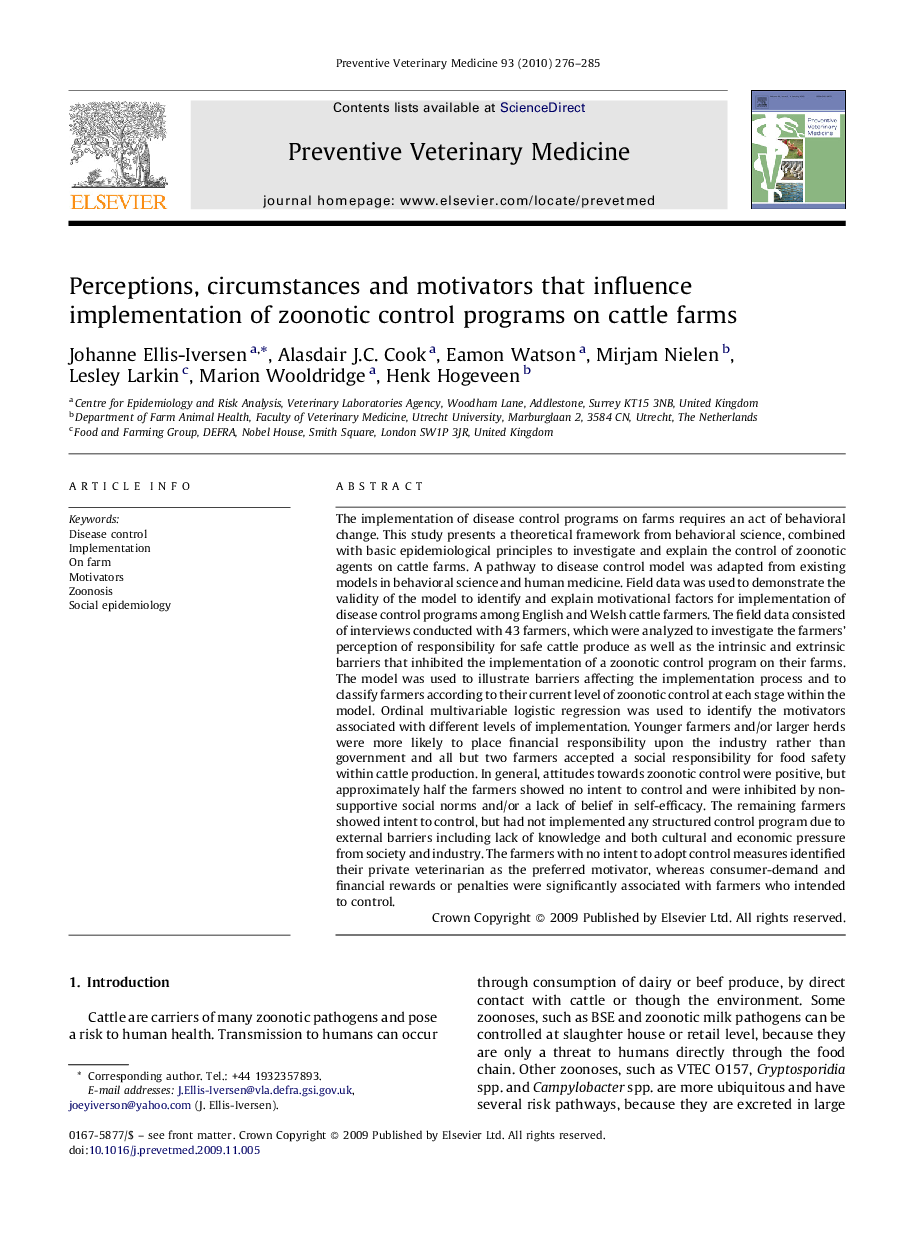| کد مقاله | کد نشریه | سال انتشار | مقاله انگلیسی | نسخه تمام متن |
|---|---|---|---|---|
| 2453174 | 1110077 | 2010 | 10 صفحه PDF | دانلود رایگان |

The implementation of disease control programs on farms requires an act of behavioral change. This study presents a theoretical framework from behavioral science, combined with basic epidemiological principles to investigate and explain the control of zoonotic agents on cattle farms. A pathway to disease control model was adapted from existing models in behavioral science and human medicine. Field data was used to demonstrate the validity of the model to identify and explain motivational factors for implementation of disease control programs among English and Welsh cattle farmers. The field data consisted of interviews conducted with 43 farmers, which were analyzed to investigate the farmers’ perception of responsibility for safe cattle produce as well as the intrinsic and extrinsic barriers that inhibited the implementation of a zoonotic control program on their farms. The model was used to illustrate barriers affecting the implementation process and to classify farmers according to their current level of zoonotic control at each stage within the model. Ordinal multivariable logistic regression was used to identify the motivators associated with different levels of implementation. Younger farmers and/or larger herds were more likely to place financial responsibility upon the industry rather than government and all but two farmers accepted a social responsibility for food safety within cattle production. In general, attitudes towards zoonotic control were positive, but approximately half the farmers showed no intent to control and were inhibited by non-supportive social norms and/or a lack of belief in self-efficacy. The remaining farmers showed intent to control, but had not implemented any structured control program due to external barriers including lack of knowledge and both cultural and economic pressure from society and industry. The farmers with no intent to adopt control measures identified their private veterinarian as the preferred motivator, whereas consumer-demand and financial rewards or penalties were significantly associated with farmers who intended to control.
Journal: Preventive Veterinary Medicine - Volume 93, Issue 4, 1 March 2010, Pages 276–285